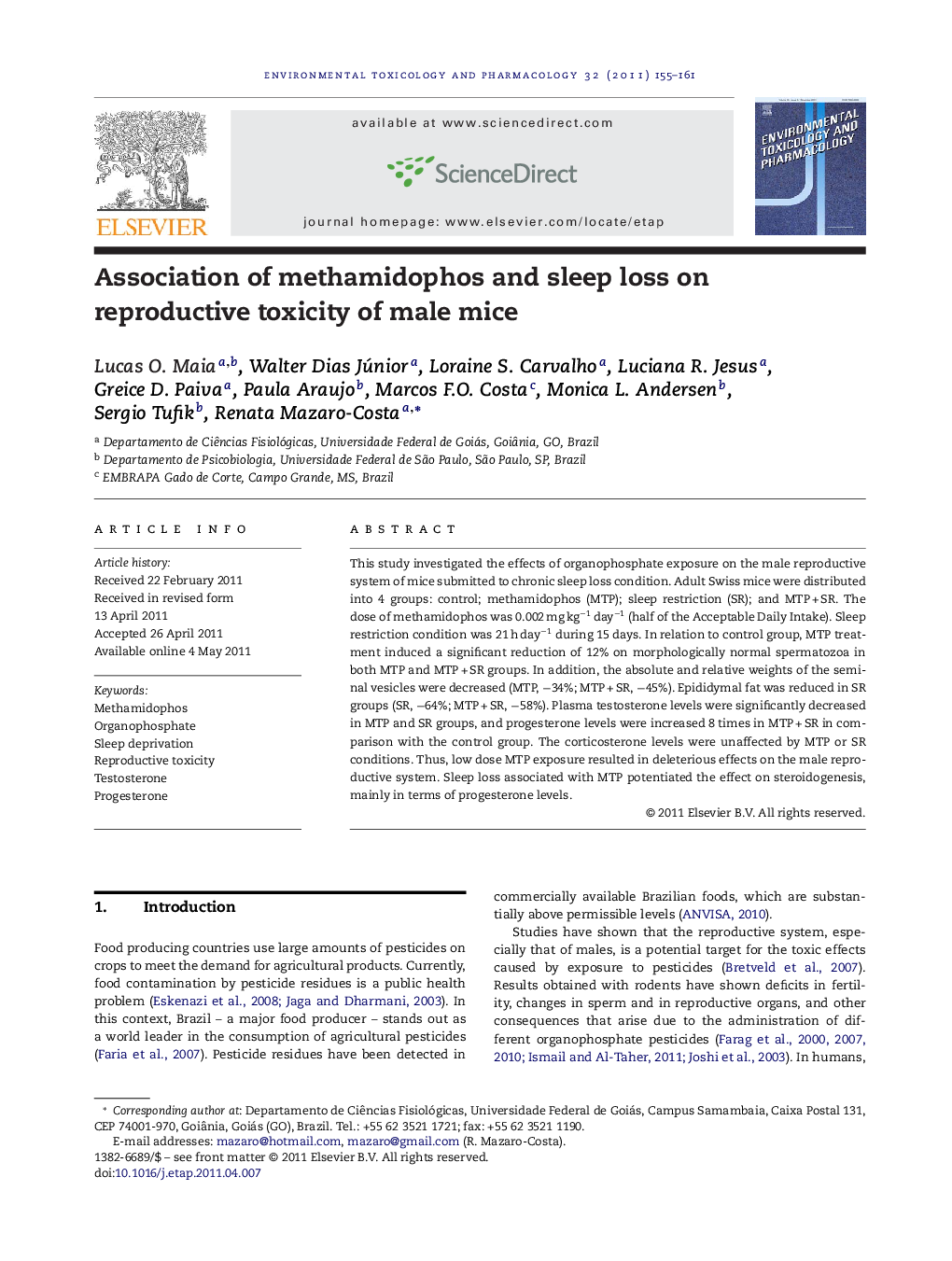| Article ID | Journal | Published Year | Pages | File Type |
|---|---|---|---|---|
| 2583788 | Environmental Toxicology and Pharmacology | 2011 | 7 Pages |
This study investigated the effects of organophosphate exposure on the male reproductive system of mice submitted to chronic sleep loss condition. Adult Swiss mice were distributed into 4 groups: control; methamidophos (MTP); sleep restriction (SR); and MTP + SR. The dose of methamidophos was 0.002 mg kg−1 day−1 (half of the Acceptable Daily Intake). Sleep restriction condition was 21 h day−1 during 15 days. In relation to control group, MTP treatment induced a significant reduction of 12% on morphologically normal spermatozoa in both MTP and MTP + SR groups. In addition, the absolute and relative weights of the seminal vesicles were decreased (MTP, −34%; MTP + SR, −45%). Epididymal fat was reduced in SR groups (SR, −64%; MTP + SR, −58%). Plasma testosterone levels were significantly decreased in MTP and SR groups, and progesterone levels were increased 8 times in MTP + SR in comparison with the control group. The corticosterone levels were unaffected by MTP or SR conditions. Thus, low dose MTP exposure resulted in deleterious effects on the male reproductive system. Sleep loss associated with MTP potentiated the effect on steroidogenesis, mainly in terms of progesterone levels.
► We tested Methamidophos exposition associated or not with sleep loss in male mice. ► Methamidophos (MTP) reduced the number of morphologically normal spermatozoa. ► Treatment with MTP decreased the absolute and relative weights of seminal vesicle. ► Significant reduction in testosterone levels were obtained with MTP exposition. ► Sleep loss associated with MTP potentiated the increase in progesterone levels.
